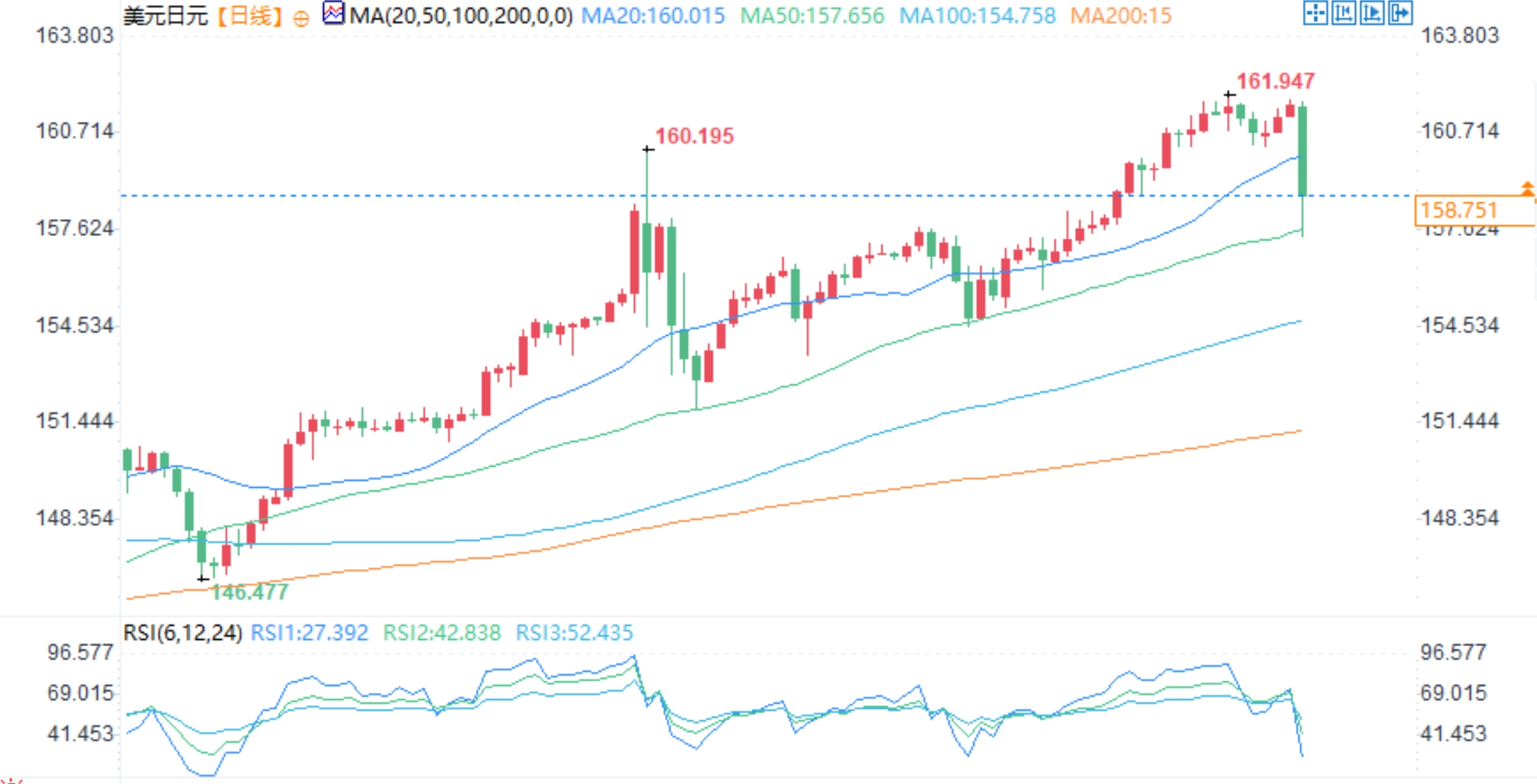Japanese yen jumps nearly 3%, 'real hammer' government intervention? Official response sparks' more imagination '
On Thursday (July 11th), the Japanese yen surged nearly 3%, marking its largest daily increase since the end of 2022. Local media attributed this to a round of official purchases to support the currency at a 38 year low. Japan's Chief Foreign Exchange Officer, Shinobu Kanda, stated that it is "not possible" to comment on whether Japan has intervened in the foreign exchange market.
After the Japanese yen strengthened against the US dollar, Shinobu Kanda spoke to reporters in Tokyo, saying that the market wants to know whether the trend of the yen is a reaction to the US CPI or influenced by other catalysts. He said that seeing the impact of major changes on people's livelihoods, the government "generally does not" comment on whether to intervene in the foreign exchange market. If intervention is made, it will be disclosed at the end of the month.
Japanese Yen Soars
Data shows that consumer inflation in the United States cooled more than expected in June, and the US dollar fell to a low of 157.40 at one point.
However, the scale and speed of this move have made traders wary of the possibility of Japanese intervention. The authorities intervened as early as early May to support the Japanese yen exchange rate.
Local Japanese television station Asahi quoted government sources as saying that officials have intervened in the foreign exchange market.
The domestic news agency Jiji quoted Japanese senior monetary diplomat Masato Kanda as saying that he cannot comment on whether there is intervention, but the recent trend of the yen is "not in line with fundamentals".
The Japanese Ministry of Finance usually does not comment on foreign exchange market activities, and the Federal Reserve Bank of New York has not immediately responded to Reuters' request for comment.
Some currency analysts and traders initially stated that they believed the surge in the yen may have been triggered by post consumer price report related activities, which reinforced the Fed's reasons for cutting interest rates as early as September.
However, as the yen strengthens, others indicate that this move carries signs of official purchases.
Chris Scicluna, head of economic research at Daiwa Capital Markets in London, said, "It will take some time for the Ministry of Finance to confirm this, but the extent of this measure leaves a strong impression that it has been proactive and has taken action after the release of the US CPI data
Due to Japan's interest rates being much lower than anywhere else, investors have been continuously selling the yen for months, leading to the accumulation of bearish positions in the yen, some of which will be forced to close.
The latest exchange rate of the US dollar against the Japanese yen was 158.81, down 1.76% on the day, the lowest level since mid June.
The interest rate spread between the United States and Japan has created a lucrative trading opportunity, where traders can borrow Japanese yen at low interest rates and invest in assets denominated in US dollars for higher returns, known as arbitrage trading.
Roller Coaster Market
The US inflation data released on Thursday increases the possibility of further narrowing this gap.

The futures market shows that traders now fully expect the Federal Reserve to cut interest rates in September, with another cut of about 60 basis points by the end of the year, compared to a cut of about 45 basis points earlier this week, which weakened the US dollar.
The problem is that market positions have expanded to a point where they can easily self grow, "said James Malcolm, head of foreign exchange strategy at UBS and a senior Japan observer
Whether or not you believe that the US dollar should stabilize against the Japanese yen, if the US dollar falls against the Japanese yen and you hold a long position, you must exit... This is the definition of classic arbitrage liquidation
The Japanese yen strengthened across the board, with the euro falling 1.49% to 172.46 yen and the pound falling 1.32% to 204.866 yen. The Australian dollar fell to 107.2729 yen against the Japanese yen.
According to data from the London Stock Exchange, the latest weekly data from US regulators shows that speculators hold short yen positions worth $14.26 billion, not far from the six-and-a-half-year high in April.
In theory, the larger the bearish position, the greater the space for investors to reverse the trend, which will push up the exchange rate of the Japanese yen against the US dollar.
Tips:This page came from Internet, which is not standing for FXCUE opinions of this website.
Statement:Contact us if the content violates the law or your rights
